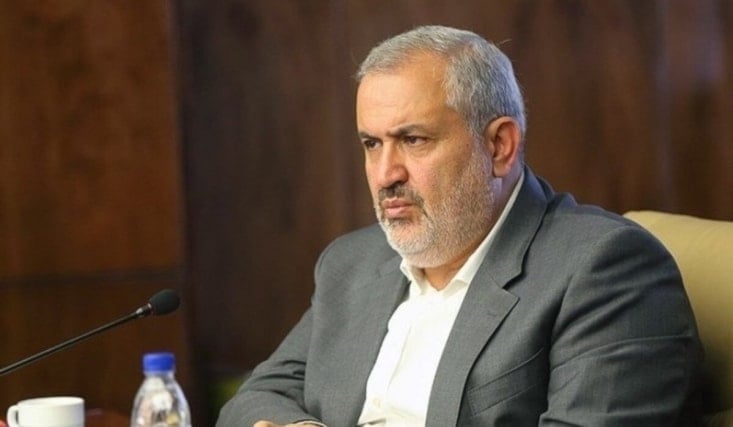Iran in talks with Gulf States to expand cross-border energy exchange
First Vice President Mohammadreza Aref recently echoed this vision, stating, "Iran is striving to become a regional energy hub."
-

Iranian Minister of Energy Abbas Aliabadi. (Agencies)
Iran is intensifying its engagement with neighboring Gulf countries as part of a strategic push to expand cross-border energy cooperation and solidify its position as a leading power broker in the region's energy landscape.
Speaking on Saturday, Iran's Minister of Energy Abbas Aliabadi confirmed that talks are ongoing with Qatar, the United Arab Emirates (UAE), and Oman. "Extensive consultations are underway with Qatar, the United Arab Emirates, and Oman to increase and develop cross-border exchanges," he said.
Aliabadi emphasized that the effort aims not only to deepen regional connectivity but also to enhance the stability of regional power grids. "Iran's Ministry of Energy is considering interaction and cooperation with other countries, trying to prevent incidents such as the electricity grid collapse that occurred in some European countries, such as Spain," he added.
The energy minister reiterated Tehran's objective: "To increase and develop cross-border exchanges, extensive consultations are underway with Qatar, the UAE, and Oman to increase electricity exchanges."
در روز نخست نهمین کنفرانس بینالمللی انرژیهای تجدیدپذیر، با حضور دکتر #پزشکیان رئیس جمهور محترم، دکتر عباس علیآبادی و دکتر مهدی غضنفری، از برگزیدگان ششمین دوره جایزهی این رویداد تجلیل شد.
— مالک شریعتی (@malekshariati) May 24, 2025
عزم دولت برای توسعه انرژیهای پاک، جدی است و انشاءالله مدیریت مصرف هم به سرعت دنبال شود. pic.twitter.com/TWQtw3U9a9
The initiative is part of a broader national strategy under President Masoud Pezeshkian's administration. First Vice President Mohammadreza Aref recently echoed this vision, stating, "Iran is striving to become a regional energy hub," and describing the goal as "a top priority for the administration of President Masoud Pezeshkian."
Read more: Pezeshkian inaugurates 59,000 projects on Khorramshahr Day
Iran's ambitions are embedded in its Seventh Five-Year Development Plan, which outlines targets for exporting 40 billion cubic meters of gas and importing 20 billion annually, along with electricity exchanges of at least 20 billion kilowatt-hours per year. These figures reflect the scale of Iran's energy outreach and its aim to transition from a domestic supplier to a major regional conduit.
Beyond the Gulf, Iran is also collaborating with Turkmenistan to complete a third electricity transmission line linking Mashhad to Mary, signaling broader regional integration efforts beyond the Persian Gulf.
The talks with Gulf countries, particularly those with whom Tehran has recently eased diplomatic tensions, are a sign that Iran is leveraging shared energy needs and infrastructure to build new partnerships amid geopolitical shifts.

 2 Min Read
2 Min Read










